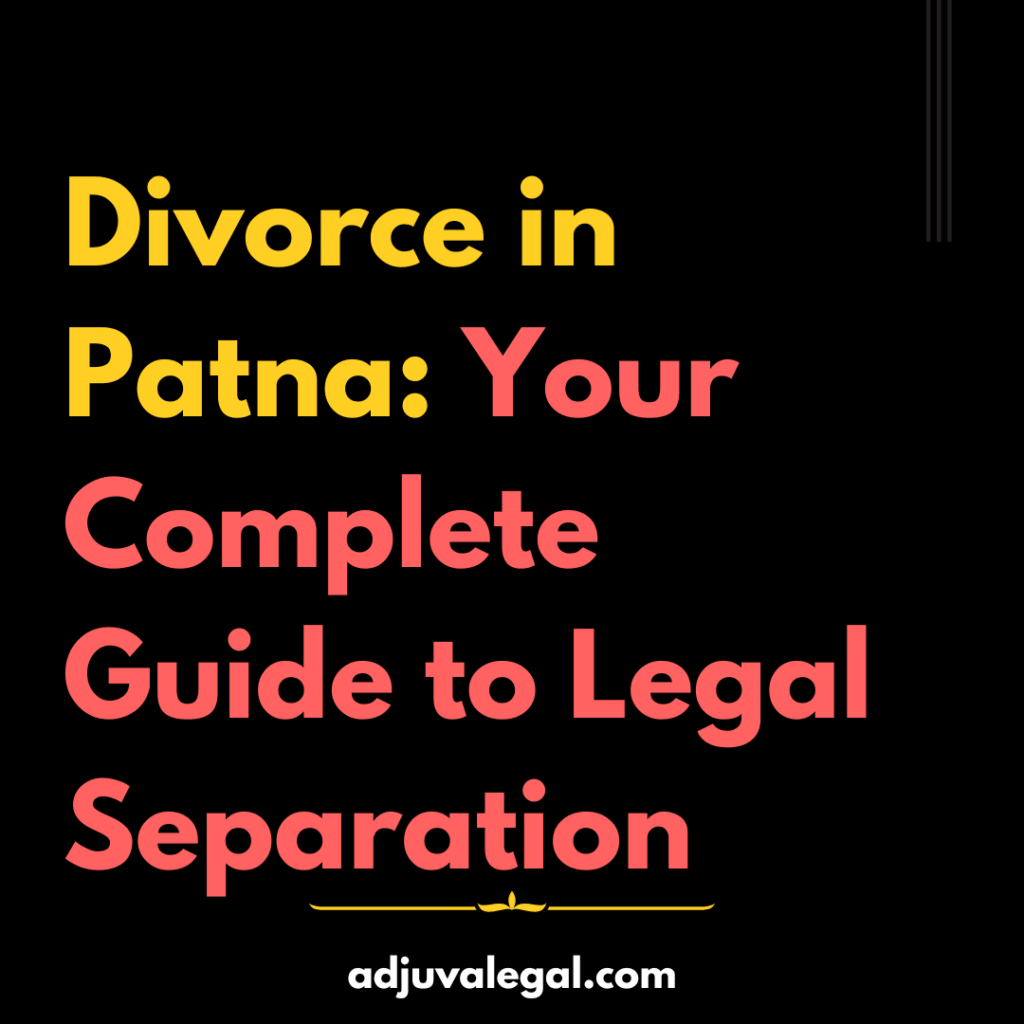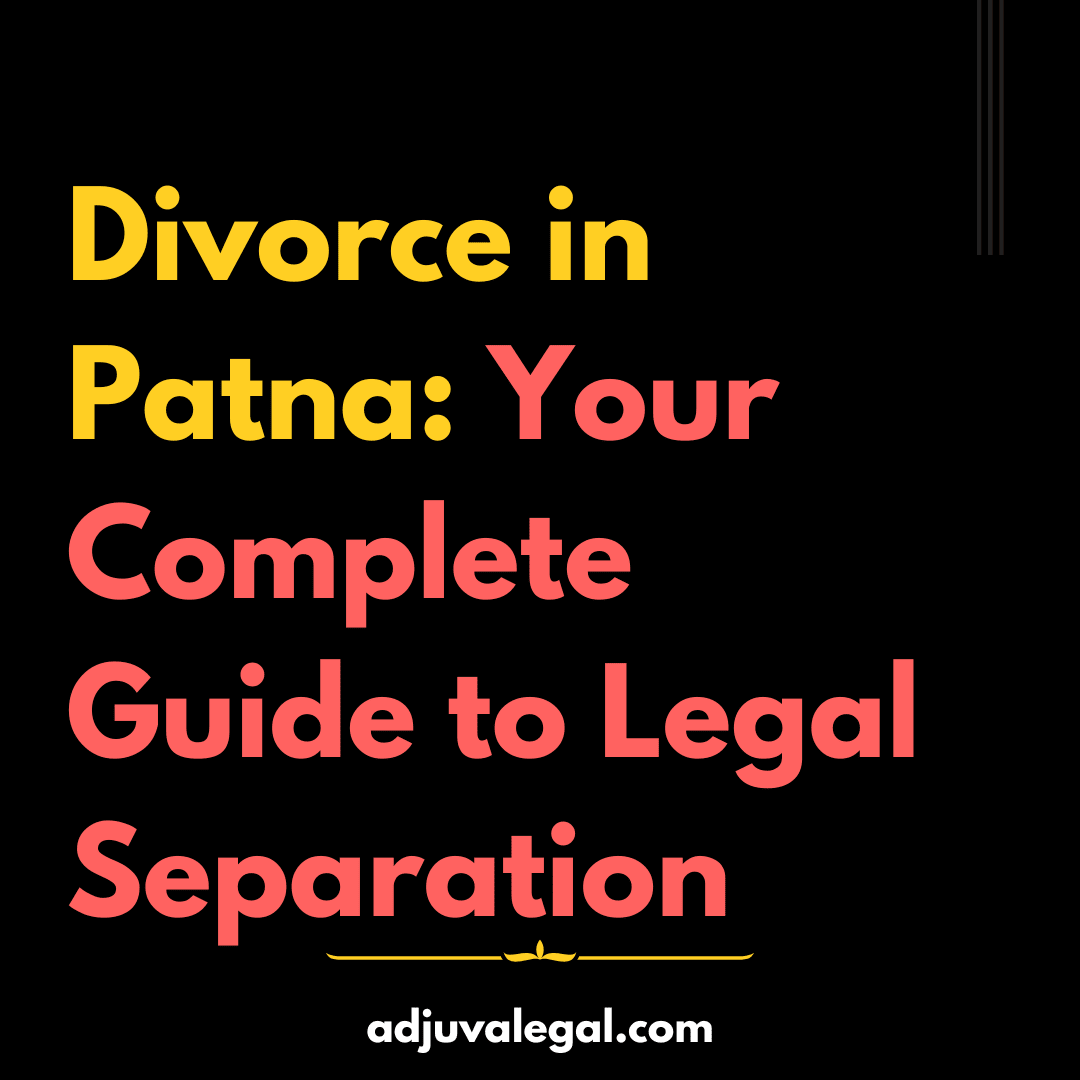Okay, so nobody plans to get divorced, right? It’s rough, it’s messy, and it’s not something you want to go through alone.
If you’re in Patna and facing this tough situation, knowing the ins and outs of divorce law in India is crucial.
And hey, we get it – legal jargon can be confusing AF.
That’s where this guide comes in.
We’ll break down everything you need to know about divorce in Patna, in a way that makes sense.

Types of Divorce in Patna: What's Your Situation?
In India, including Patna, there are two main ways to get a divorce:
- Mutual Consent Divorce: This is the smoothest route. Both parties agree to the divorce, the terms of the separation, and things like alimony and child custody (if applicable). Think of it as the “conscious uncoupling” of the legal world.
- Contested Divorce: Things get a bit more complicated here. One spouse wants a divorce, while the other doesn’t, or they can’t agree on the terms. This often involves court battles, which can be lengthy and emotionally draining.

Grounds for Divorce in Patna: The Legal Reasons
To get a divorce in India, you need a valid legal reason. Some common grounds include:
- Cruelty: This covers both physical and mental cruelty.
- Adultery: Having an extramarital affair.
- Desertion: If your spouse has abandoned you for at least two years.
- Conversion: If your spouse has changed their religion.
- Mental disorder: If your spouse suffers from an incurable mental illness.
The Divorce Process in Patna: A Step-by-Step Guide
While the exact process can vary depending on your situation, here’s a general overview:
- Filing the divorce petition: This is the first official step. Your lawyer will file a petition in the family court in Patna, stating the grounds for divorce.
- Serving the notice: Your spouse will be served with a copy of the petition.
- Appearance and response: Your spouse has a chance to respond to the petition and contest it if they wish.
- Attempts at reconciliation: The court will usually encourage the couple to try and work things out. Sometimes, counselling is ordered.
- Trial and evidence: If reconciliation fails, the case proceeds to trial, where both sides present their evidence.
- Judgment and decree: The court will issue a judgment, granting or denying the divorce. If granted, a decree of divorce is issued, officially ending the marriage.
Adjuva Legal: Don't Face Patna's Legal Battles Alone
Divorce is tough, no doubt. But with the right legal guidance, you can navigate the process with more confidence and clarity.
At Adjuva Legal, we’re not just your legal support; we’re your partners in getting through this challenging time.
Our experienced team in Patna specializes in family law and can help you with:
- Understanding your rights and options.
- Filing the necessary paperwork.
- Negotiating a fair settlement.
- Representing you in court.
Beyond the Legalities: Taking Care of Yourself
Divorce isn’t just a legal process; it’s an emotional rollercoaster. Remember to prioritize your well-being during this time.
- Lean on your support system: Talk to friends, family, or a therapist.
- Practice self-care: Focus on your physical and mental health.
- Be patient with yourself: Healing takes time.

Remember, this is a new chapter in your life. With the right support and guidance, you can move forward and create a brighter future.
If you're feeling trapped in a dead marriage, don't give up! Reach out to Adjuva Legal today.
FAQs
A mutual consent divorce can be finalized in 6-18 months, while a contested divorce can drag on for years, depending on the complexity of the case and court backlog.
Again, it varies. Factors like lawyer fees, court fees, and the type of divorce (mutual or contested) all play a role. Contested divorces, with their potential for lengthy court battles, tend to be more expensive.
While it’s technically possible to represent yourself, having a lawyer is highly recommended. They can help you understand your rights, navigate the legal complexities, and ensure you get a fair outcome. Think of it as an investment in your future.
Some common grounds are: cruelty (physical or mental), adultery, desertion, conversion, mental disorder, and irreconcilable differences (though this often requires a period of separation).
The court’s priority is the well-being of the child. Custody arrangements (sole or joint) will be determined based on what’s in the child’s best interests.
Alimony is financial support provided by one spouse to the other after divorce. Whether you’re entitled to it and the amount depends on factors like your financial situation, earning capacity, and the length of the marriage.
Yes, you can file for divorce in Patna if you’re currently residing there, even if you got married elsewhere. The jurisdiction in mutual divorce will be the place where the marriage took place, the wife resides, or both last resided together.
It’s a 6-month gap between two divorce motions before the couple can reconsider their decision to divorce. The court may try to help the couple reconcile during this time. However, if they still want to proceed with the divorce after this period, the court will grant it.
If your spouse is avoiding court summons or refusing to participate, your lawyer can help you explore legal options to move the process forward.
We’re here to guide you every step of the way, from understanding your rights to representing you in court. We’ll provide clear, compassionate legal advice and work tirelessly to protect your interests.
About the Author
Utkarsh Srivastava, founder of award-winning Adjuva Legal, is a renowned divorce consultant with vast experience serving clients globally, particularly in India. He’s a Harvard-trained professional committed to providing high-quality, affordable legal services, exemplified by his pioneering Free Legal Aid Program in India.







